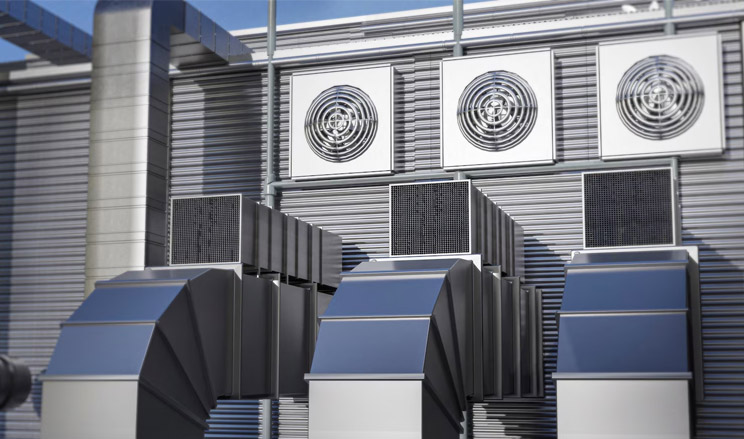How Smart Air Quality Monitoring Can Save Your HVAC Energy Cost
September 12, 2024
How Air Quality Monitoring Can Lower Your HVAC System’s Energy Costs
In today’s world, where energy efficiency and cost savings are top priorities for facility managers and businesses alike, the integration of advanced technology into our daily systems is more critical than ever. One such integration that offers significant benefits is the use of air quality monitoring in optimizing HVAC (Heating, Ventilation, and Air Conditioning) systems. By leveraging cutting-edge air quality monitoring technology, you can achieve considerable reductions in HVAC energy costs, enhance indoor air quality, and promote overall well-being. Here’s how integrating advanced air quality monitoring can help lower your HVAC system’s energy costs.
Understanding the Impact of Air Quality on HVAC Systems
HVAC systems are designed to maintain a comfortable indoor environment by regulating temperature, humidity, and air quality. However, traditional HVAC systems often operate on fixed schedules or temperature settings without considering real-time changes in indoor air quality. This can lead to unnecessary energy consumption as the system may continue to operate at full capacity even when it is not needed.
Air quality monitoring devices, such as the HibouAir developed by Smart Sensor Devices, can provide valuable insights into the indoor environment. By continuously measuring parameters like CO2 levels, particulate matter (PM1.0, PM2.5, PM10), ambient pressure, temperature, humidity, these devices offer a comprehensive view of the air quality in your space.
How Air Quality Monitoring Can Optimize HVAC Performance
Real-Time Data for Smarter HVAC Control Air quality monitoring devices provide real-time data that can be used to adjust HVAC settings dynamically. For example, if the device detects high levels of CO2 or particulate matter, the HVAC system can be programmed to increase ventilation or filtration. Conversely, if air quality is good, the system can reduce its operation, leading to energy savings.
Predictive Maintenance and Efficiency Monitoring air quality allows you to identify patterns and trends that may indicate potential issues with your HVAC system. For example, consistent high levels of particulate matter may suggest that the air filters need replacing. By addressing these issues proactively, you can maintain optimal system performance and prevent energy wastage due to inefficiencies or system strain.
Enhanced Comfort and Reduced Overwork Air quality monitoring helps maintain a balanced indoor environment, reducing the likelihood of overworking the HVAC system. By ensuring that temperature, humidity, and air quality levels are kept within optimal ranges, the system operates more efficiently, consuming less energy while providing consistent comfort.

Energy-Saving Automation Modern HVAC systems can be integrated with air quality monitoring devices to enable automated adjustments based on real-time data. This automation ensures that the system operates only when necessary, avoiding unnecessary energy use and reducing overall operating costs.
Integrating HibouAir with Your HVAC System
The HibouAir, developed by Smart Sensor Devices, offers a seamless solution for integrating air quality monitoring into your HVAC system. Its advanced multi-sensor capabilities provide comprehensive data that can be used to optimize HVAC performance. The device can be easily integrated with existing HVAC systems, allowing you to take full advantage of real-time air quality monitoring and automation features.
By using HibouAir, you can ensure that your HVAC system operates efficiently, reducing energy costs while maintaining a healthy indoor environment. The device’s plug-and-play functionality makes it simple to set up and integrate, and its data can be accessed through a user-friendly interface for smart analysis and decision-making.
Facebook Twitter LinkedIn